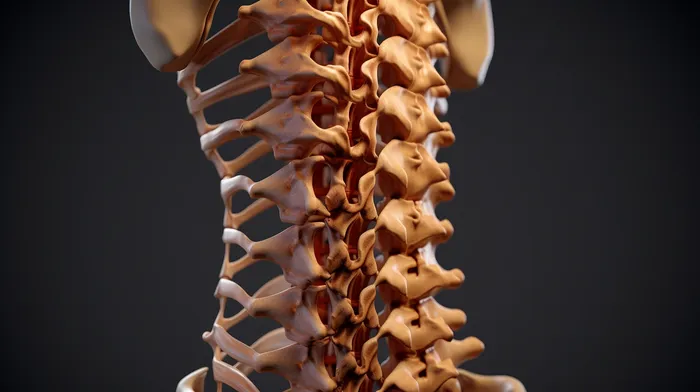Have you ever caught a glimpse of yourself in the mirror and noticed that you’re slouching? While it’s easy to brush off bad posture as just a habit, it’s important to recognize the potential consequences of not standing up straight. According to researchers in Japan, the shape of your spinal column may predict your risk of going into a nursing home. If you can’t stand up straight and are constantly bending forward at a sharp angle, your chances of disability and nursing home admission increase.
Your Spine Tells a Story
The research team studied the trunk angle of inclination — the angle between the true vertical and a straight line from the first thoracic vertebra to the first sacral vertebra. What they found is that this angle is associated with an increased dependence on help for activities of daily living. These activities include basic self-care tasks like bathing, feeding, toileting, maintaining continence, dressing, and transferring in or out of a bed or chair.
Researchers concluded that “spinal posture changes with age, but accumulated evidence shows that good spinal posture is important in allowing the aged to maintain independent lives.” This means that working on good posture throughout your life could have a significant impact on your quality of life as you get older.
The Dangers of Poor Posture
Unfortunately, poor posture is a pervasive problem. Many of us spend hours each day hunched over our computers, phones, and tablets, creating long-term issues for our spinal health and inadvertently increasing our chances of ending up in a nursing home.
Some health consequences of poor posture include:
- Muscle imbalances: Poor posture can cause muscle imbalances as the body tries to compensate for poor alignment. This can lead to muscle tightness, weakness, and pain.
-
Disc degeneration: As we age, our spinal discs experience wear and tear. Poor posture adds unnecessary stress to the spine and can speed up this process.
-
Nerve impingement: Poor posture can cause spinal misalignments, which may lead to nerve impingement and pain, numbness, or tingling in the extremities.
-
Reduced lung capacity: Slouching can compress the lungs, making it more difficult to take deep breaths and absorb enough oxygen.
-
Joint pain: When your body isn’t aligned properly, it puts extra stress on your joints, causing them to become inflamed, irritated, or worn down more quickly.
Aim for Better Posture
Improving your posture can decrease the risk of these issues and may help you maintain independence as you age. Here are a few tips for better posture:
- Be mindful of your posture: Awareness is the first step towards fixing poor posture. Pay attention to how you stand, sit, and move throughout the day.
-
Use ergonomic office equipment: Invest in an adjustable chair with lumbar support and a work surface at the right height to promote proper posture. Avoid slumping or reaching for your keyboard and mouse.
-
Get up and move: Prolonged sitting can contribute to poor posture and a myriad of health problems. Set a timer to remind yourself to stand up, stretch, and walk throughout the day.
-
Strengthen your core: A strong core is key to maintaining good posture. Implement exercises like planks, bridges, and seated leg lifts to help support your spine.
-
Practice good body mechanics: When lifting or carrying heavy objects, bend at your knees instead of your waist, and maintain a neutral spine to protect your back.
-
Consider yoga or Pilates: Both of these mind-body practices emphasize posture, alignment, and body awareness, which can be beneficial for spinal health.
-
See a professional: If you’re struggling to correct your posture on your own, consider seeking help from a physical therapist, chiropractor, or other healthcare provider who specializes in spinal alignment.
The saying, “stand tall,” isn’t just a boost for your confidence. Recognizing the connection between posture and the risk of nursing home admission is crucial in maintaining your independence and quality of life as you age. By implementing these strategies to improve your posture and prioritize spinal health, you’ll be taking positive steps towards a brighter, more self-sufficient future.



